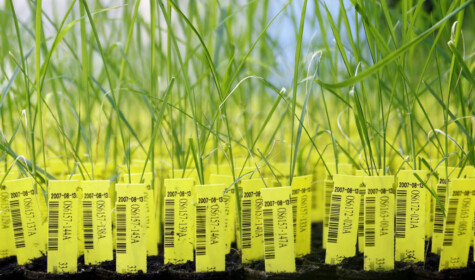Our CEO Patrick Holden comments on the government’s proposals to allow gene-editing in the UK, with the launch of a new consultation on genetic technologies.
A major downside of Brexit is that it has given the government the opportunity to permit the use of gene editing to further intensify our food and farming systems.
Of course, like all other technologies, gene editing could be used for good or ill. But in all likelihood, given the current UK administration’s infatuation with technological fixes and its conviction that only further intensification can feed a hungry world, gene editing is likely to be deployed in such a way that it will further accelerate the devastating narrowing of the gene pool which has been a feature of postwar farming, not only in the UK but throughout the world.
There is an erroneous conviction that through plant breeding we can somehow magically develop plants which are drought and disease resistant, salt tolerant and at the same time produce increased quantities of nutrient dense food. This is simply gravity-defying nonsense. The precondition for the production of healthy food is a fertile soil, but the gene editors have forgotten this and instead are hell-bent on perpetuating the extractive industry which modern farming has become.
On the animal front, we can expect livestock to be bred to live even shorter lives, with all the horrific attendant animal welfare consequences, erroneously justified on the grounds of reduced greenhouse gas emissions and leaner meat, because that is the fashion. This will make the challenges we face even greater.
Photograph: BASF





